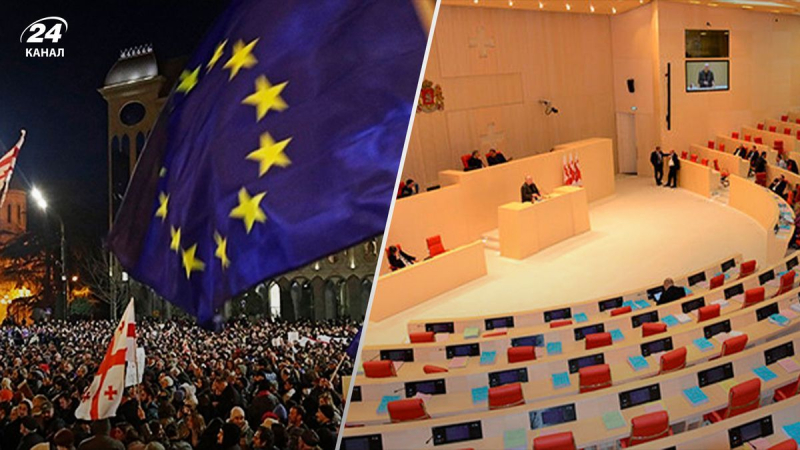
Protests erupted in Georgia over the adoption in the first reading by the country's parliament of the scandalous law on “foreign agents”. There are two key reasons why the Georgian government is pushing this law.
This is if we take out the Russian factor that influences these reasons, political scientist Igor Reiterovich told Channel 24 about this.
Government needs more leverage
The first reason is that the Georgian authorities do not feel very confident. Consequently, it needs an additional mechanism to control the processes that take place in the society of the country.
Civil society has always been developed in Georgia. In particular, at the level of public organizations involved in the development of democracy, support for democratic tendencies, as well as opposition media. Such a law provides additional levers of pressure on this field and the ability to control it. the political scientist explained.
Moreover, this law allows to recognize individuals as foreign agents and expel them from the country. That is, this is such a “convenient” way to deal with the opposition, to either expel them or create conditions for them to leave on their own.
Transfer of responsibility for problems with European integration
The second reason is that the Georgian authorities understand the problems they face on the path of European and Euro-Atlantic integration. However, the country's leadership cannot tell the population that it is solely their fault. So he invents stories with such laws, which the EU categorically opposes.
Yes, this law violates at least 2 of the 12 points that Georgia had to fulfill in order to continue integration. And the authorities of the country have an argument, they say, “we want to go to Europe, but they don't take us there, because they don't like our legislation.”
What is known about the law regarding “foreign agents”
The law on “foreign agents” provides that all legal entities and media that receive at least 20% subsidies from foreign states will be included in the register of agents of foreign influence. This list will be compiled by the National Public Registry Agency, and there were penalties for non-registration. At the same time, there are legal entities and media that would not be subject to this law. Namely, financed by funds associated with Bidzina Ivanishvili, the richest man in Georgia with sharp pro-Russian views. Representatives of the European Union and the US State Department have criticized this initiative, citing its similarity to Russia's Foreign Agents Act, which was passed back in 2012.

